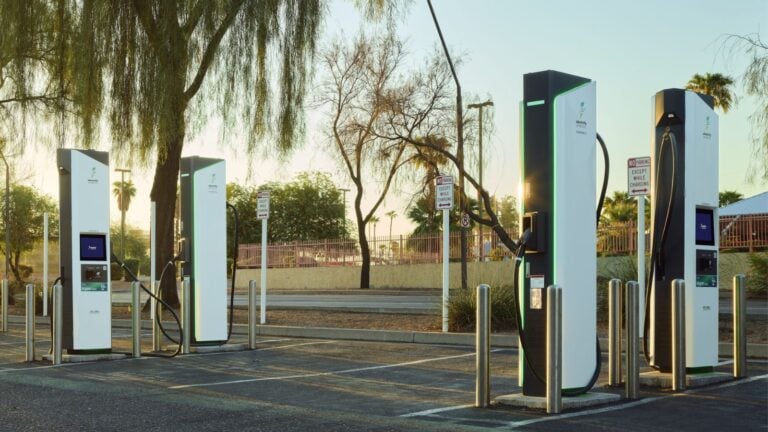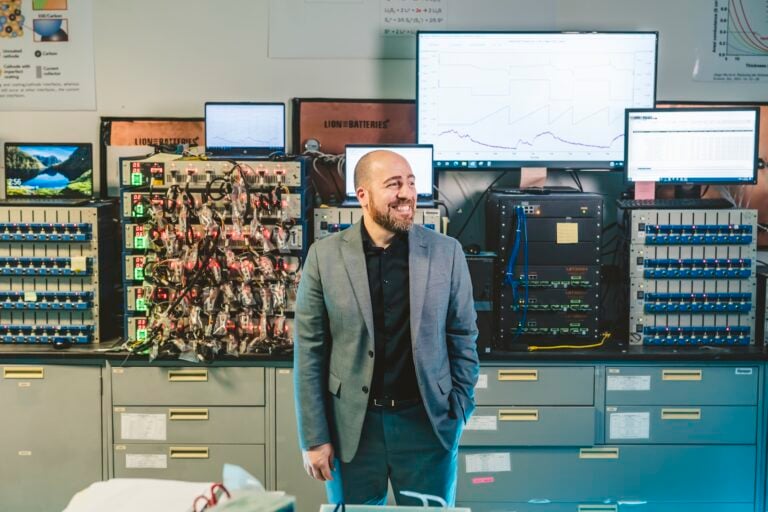Sign up for our popular daily email to catch all the latest EV news!
Lyten, Inc. Secures Significant DOE Funding for Battery Innovation
In a notable advancement for electric vehicle (EV) battery technology, Lyten, Inc. has been awarded a $4 million grant by the U.S. Department of Energy (DoE). This funding aims to fast-track the commercial production of lithium-sulfur batteries, marking a significant step towards enhancing EV performance and sustainability.
The grant, originating from the DoE’s Energy Efficiency and Renewable Energy / Vehicle Technologies Office, specifically supports lithium-sulfur battery technologies. These are seen as pivotal in reducing offshore supply chain risks and in significantly extending the driving range of EVs. By leveraging sulfur, a readily available and cost-effective material, lithium-sulfur batteries promise to offer more than double the energy density of traditional lithium-ion counterparts, without relying on critical minerals like nickel, cobalt, or graphite.
This financial boost aligns with the broader U.S. strategy to promote alternative energy sources and secure supply chains, especially in light of the National Defense Authorization Act. This act, recently endorsed with bipartisan support, will restrict the U.S. Defense Department from procuring batteries from China’s major manufacturers by October 2027, underscoring the urgency for developing batteries with alternative chemistries such as lithium-sulfur.
Dan Cook, CEO and Co-founder of Lyten, expressed optimism about the support from both the Department of Defense and the Department of Energy. Cook emphasized the importance of breakthrough technologies like lithium-sulfur in achieving energy security and supply chain independence for the U.S.
The DoE’s funding extends beyond Lyten to encompass collaborations with Stanford University, the University of Texas-Austin, and Arcadium Lithium, indicating a comprehensive approach towards advancing lithium-sulfur technology. Additionally, Lyten plays a role in a DoE-funded project with Purdue University, aimed at enhancing lithium-sulfur cell modeling capabilities.
Lyten’s innovative use of 3D Graphene in developing a sulfur-graphene composite cathode has been a game-changer, accelerating the commercial viability of lithium-sulfur batteries. The company has already initiated a semi-automated lithium-sulfur pilot production line and plans to commence commercial deliveries of non-EV cells in 2024.
Following a successful Series B funding round, which raised $200 million, Lyten’s total investment has reached $410 million. This funding is earmarked for scaling up the production of 3D Graphene applications and lithium-sulfur batteries, with significant contributions from industry giants such as Stellantis, FedEx, Honeywell, and Walbridge.
About Lyten: Founded in 2015, Lyten is at the forefront of supermaterial applications, harnessing its proprietary 3D Graphene technology to develop innovative solutions across the automotive, aerospace, defense, and other sectors. With a commitment to decarbonization and technological innovation, Lyten continues to lead the charge in next-generation battery development and other cutting-edge applications. For more details, visit Lyten’s website.
Sign up for our popular daily email to catch all the latest EV news!








